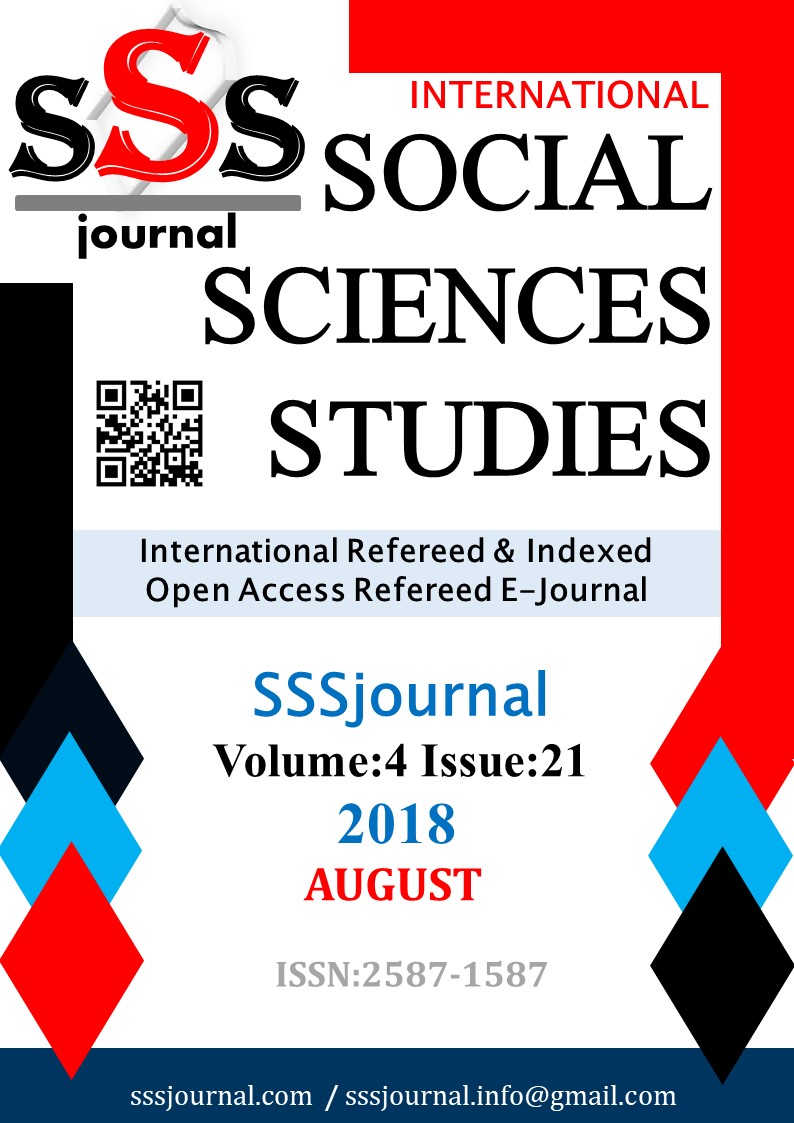İRAN İSLAM DEVRİMİ ÖNCESİ VE SONRASINDA TÜRKİYE İRAN EKONOMİK İLİŞKİLERİNEKİ DÖNÜŞÜM VE BÖLGESEL SİYASATE ETKİLERİ (1979-2011)
Author :
Abstract
Varşova paktı (SSCB) ve Kuzey Atlantik ittifakının (NATO) var olduğu iki kutuplu bir dünyada İran da gerçekleşen (1979) İslam devrimi eş zamanlı denebilecek bir zamanda (1980) Türkiye’de de askeri darbe gerçekleşmiştir. Bu her iki olayın sonucu olarak, iç ve dış siyasetler yeniden şekil almaya başlamıştır. Kuzey Atlantik İttifakının bir üyesi olarak Türkiye ittifaka bağlı kalarak "Yurtta Sulh Cihanda Sulh" şiarını/ ilkesini İran ise (NATO) İttifakının en etkin üyesi olan A B D ile ekonomik ve siyasi ilişkilerini kopararak ve Varşova paktı ile ilişkilerini yeniden düzenleyerek "Ne Şarki Ne Garbi Cumhuri ye İslami"/ (Ne Doğu Ne Batı İslam Cumhuriyeti) şiarı/ ilkesi ile iki kutuplu bir dünyanın dışında bir model inşa etme yoluna gitmiştir. İran devriminin ilk yıllarına denk gelen ve 8 yıl süren İran Irak savaşı sırasında Türkiye İran ekonomik ve ticari ilişkileri yeni bir boyut kazanmış ve takip eden yıllarda da dalgalı bir seyir gözlenmiştir. Bu çalışmada islam devrimi öncesi ve sonrası Türkiye İran sosyo- ekonomik ilişkilerinin boyutuna değinilecek ve Ortadoğu coğrafyasında son yıllarda yaşanan gelişmeler/değişimler de göz önüne alınarak bu coğrafyada önümüzdeki dönemlerdeki muhtemel etkileri irdelenecektir.
Keywords
Abstract
Military coup erupted in Turkey in 1980 simultaneous to the Islamic revolution (1979) which took place at a time when a bipolar world in which Warsaw Pact (USSR) and the North Atlantic Treaty Organization (NATO) existed. As a result of these two events, the international and domestic policies appeared to be taking shape again. Committed to the North Atlantic Treaty Organization as a member of the alliance and adhering to the principle of “Peace at Home, Peace in the World,” Turkey resorted to the course of constructing a new model falling outside of the bipolar world through breaking down economic and political relations with the United States which is the most effective member of the NATO and rearranging its relations with the Warsaw Pact by refereeing to the slogan of “Neither oriental nor occidental Islamic Republic” (neither eastern nor western Islamic Republic). The economic and commercial relations between Iran and Iraq acquired a new dimension during the early years of the Iranian revolution and Iran-Iraq war which lasted eight years. However, important variations (ups and downs) were observed in the interactions of these two states in the aftermath of the Iranian revolution. In this study, the extent of social and economic relations between Turkey and Iran is analyzed before and after Islamic revolution. Taking into the considerations the developments/changes taking place in the recent years in the Middle East, potential impact of such interactions on this region are evaluated for the coming periods.
Keywords
- Arşiv Belgelerinde Osmanlı- İran İlişkileri (2010), Başbakanlık Devlet Arş. Gen.Müd. Osmanlı Arivi Daire Başkanlığı Yayın No.111, Ankara.
- (İran-Türkiye İlişkilerinde Bazı Kayıtlar (2004), (1925-1941), İran Milli Kütüphanesi Yayını, , Tahran Kitap ve Makaleler
- ABRAHAMIAN, Ervand (2009), Modern İran Tarihi, (Çev.Dilek Şendil) T.İş Bank. Yay. I.Baskı, İst.anbul.AKAL, Mustafa (2008), “Ortadoğu Sınır Ülkeleriyle Dış Ticaret Yoğunlaşması ve Yapısal Değişim”, Gaziantep Üniversitesi Sosyal Bilimler Dergisi, Sayı 7(2), s.271-296.
- AYDIN, Abdürrauf (2012), “Rıza Şah Döneminde Türkiye Ve İran Arasında Ulaştırma AltyapısınınGeliştirilmesi Bağlamında Trabzon–Tebriz Transit Ticari Yoluna İşlerlik Kazandırma Çabaları (1925- 1941)”, Elektronik Sosyal Bilimler Dergisi, Kış-2012 Cilt:11 Sayı:39 Winter-Volume:11 Issue:39
- BÖLÜKBAŞI, Süha (1990), Türkiye ve Yakındaki Ortadoğu, Dış Politika Enstitüsü Yayınları, Ankara.
- CETINSAYA, Gökhan (1999), “Ataturk Donemi Turkiye İran ilişkileri, 1926-1938” , Avrasya Dosyası Sonbahar, İran Özel Sayısı.,s.149-150.
- ÇETİNSAYA, Gökhan (1997), ‘‘Türkiye-İran İlişkileri 1945-1977’’, Türk Tarih Kurumu yayınları sempozyum bildirileri, Ankara.
- ÇETİNSAYA, Gökhan, (2002), Cumhuriyet Dönemi Türkiye- İran İlişkileri, Yeni Türkiye Yayınları, Ankara.
- DİNÇER,M.Zeki (2004), “Türkiye İle İran Arasındaki Dış Ticaret İlişkileri" Stratejik Araştırmalar Dergisi Sayı: 3 Yıl 2 , s.51
- TAKİZADEH, Hasan (1335/1956), “Ravabıt-ı İran ve Turkiyye (İran- Türkiye İlişkileri)”, Mecelle-ı Yagma, Şumareye Duvvum, Urdubehişt mah, s.50-54.
- ISSAWI, Charles (1970), “The Tabriz-Trabzon Trade, 1830-1900: Rise and Decline of a Route” , International Hjournal of Middle East Studies, 1, s. 18-27
- KAZMAN, Kenneth- MIGDOLOWITZ Carol (1996), “Iran-Turkey Pipeline Deal : The Geopolitics of Natural Gas”, CRS Report for Congress, October 10 s.
- KURAN,Timur; Yalanla Yaşamak Tercik Çarpıtmasının Toplumsal Sonuçları, çeviren :A.Timurtekin, YKB yay,2001.
- ZENGİN, İsmail; İran Devrimi ve Orta doğuya etkileri, Milliyet Yay. 1991,İstanbul. Süreli Yayınlar
- İran; İstanbul Ticaret Odası, 1979, Ülke Etütleri Dizisi, no.9,İstanbul İran; İstanbul Ticaret Odası Yayınları, 1979, İstanbul
